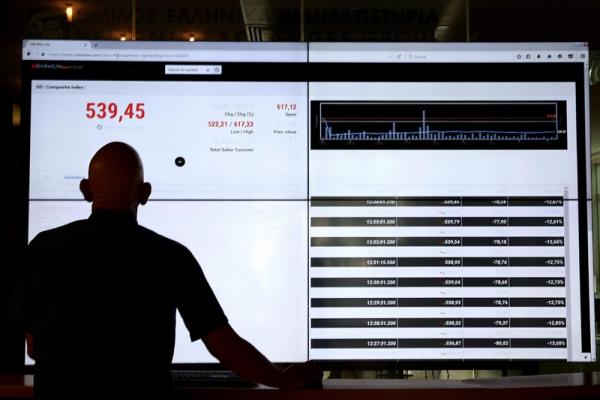Investing
Italy risks raising next to nothing from bank tax, sources say

© Reuters. FILE PHOTO: Italian Economy Minister Giancarlo Giorgetti gestures during a confidence vote over the 2023 budget at the lower house of the parliament, in Rome, Italy December 23, 2022. REUTERS/Remo Casilli/File Photo
By Giuseppe Fonte and Valentina Za
ROME (Reuters) – Italy risks collecting minimal proceeds from a windfall tax on banks after it gave lenders the option to set aside money instead of paying the levy, three sources close to the matter said.
With no provisions in the law over capital levels and distribution policies, it would be hard for banks to justify that shareholders pay the tax when they could, instead, boost capital and keep the cash on their balance sheet, two of the sources said.
The government last week revisited a 40% tax on banks’ net interest margin (NIM) that it had introduced in a shock move in August. Lenders now have the option to boost reserves by an amount equivalent to 2.5 times the tax.
Economy Minister Giancarlo Giorgetti said on Sept. 27 the final outcome of the process would be “a great bank policy measure” that makes Italy’s banks the strongest in Europe.
The law requires banks that forego the tax to set aside money under ad hoc reserves in their accounts.
This has no bearing for dividends which are normally paid out of profits.
However, European banks have also been using their excess capital to buy back their own shares and cancel them, in this way boosting dividends and earnings per share on what remains.
If forced to boost capital through the ad hoc reserves, banks can use larger buybacks over time to compensate shareholders, one of the sources said.
Banks could, in theory, eventually distribute an amount equivalent to the entire tax-related reserves they booked, but this appears unlikely as over-aggressive distribution policies would draw supervisory scrutiny, another source said.
The European Central Bank gives approval for buybacks.
With the tax due only in June next year, Italy’s main banks have months before their boards are called to make an official decision on the matter.
So far, only the chief executives of Monte dei Paschi di Siena (MPS) and UniCredit have commented on the law.
MPS CEO Luigi Lovaglio said last week that the option of boosting reserves “made sense”, adding the choice would lie with the board.
UniCredit CEO Andrea Orcel, who spoke before the latest changes were introduced, said the impact of the tax was “not meaningful” and that plans remained to distribute more than 6.5 billion euros in dividends and share buybacks for 2023.
While cooperative banks have been expected from the start to opt out of the tax as they normally put aside a large chunk of profits as reserves, analysts have forecast large banks would pay the tax.
The Treasury has never provided an official estimate of the expected tax take, although Prime Minister Giorgia Meloni has indicated she aimed for proceeds of “just under” 3 billion euros($3 billion) from the levy.
However, Giorgetti has said no spending measure was planned to be funded through the banks’ levy at present, suggesting that low revenues would not impact Italy’s creaking public finances.
The tax is due to receive final approval of Italy’s parliament this week.
($1 = 0.9542 euros)
Read the full article here

-

 Investing6 days ago
Investing6 days agoBank regulator gives BlackRock new deadline on bank stakes, Bloomberg reports By Reuters
-

 Side Hustles5 days ago
Side Hustles5 days agoHow to Craft Marketing Campaigns That Reach Multiple Generations
-

 Side Hustles5 days ago
Side Hustles5 days agoLA Rental Prices Skyrocketing Despite Price Gouging Laws
-

 Side Hustles6 days ago
Side Hustles6 days agoFormer Zillow Execs Target $1.3T Market
-

 Side Hustles3 days ago
Side Hustles3 days agoWhat to Do If TikTok is Banned — How to Protect Your Brand
-

 Side Hustles7 days ago
Side Hustles7 days agoFileJump Offers 2TB of Cloud Storage for $70—With No Strings Attached
-

 Side Hustles2 days ago
Side Hustles2 days agoWhy the Best CEOs Think Like Anthropologists
-

 Side Hustles7 days ago
Side Hustles7 days ago5 AI Books Top Entrepreneurs Are Reading in a Rush for 2025


















